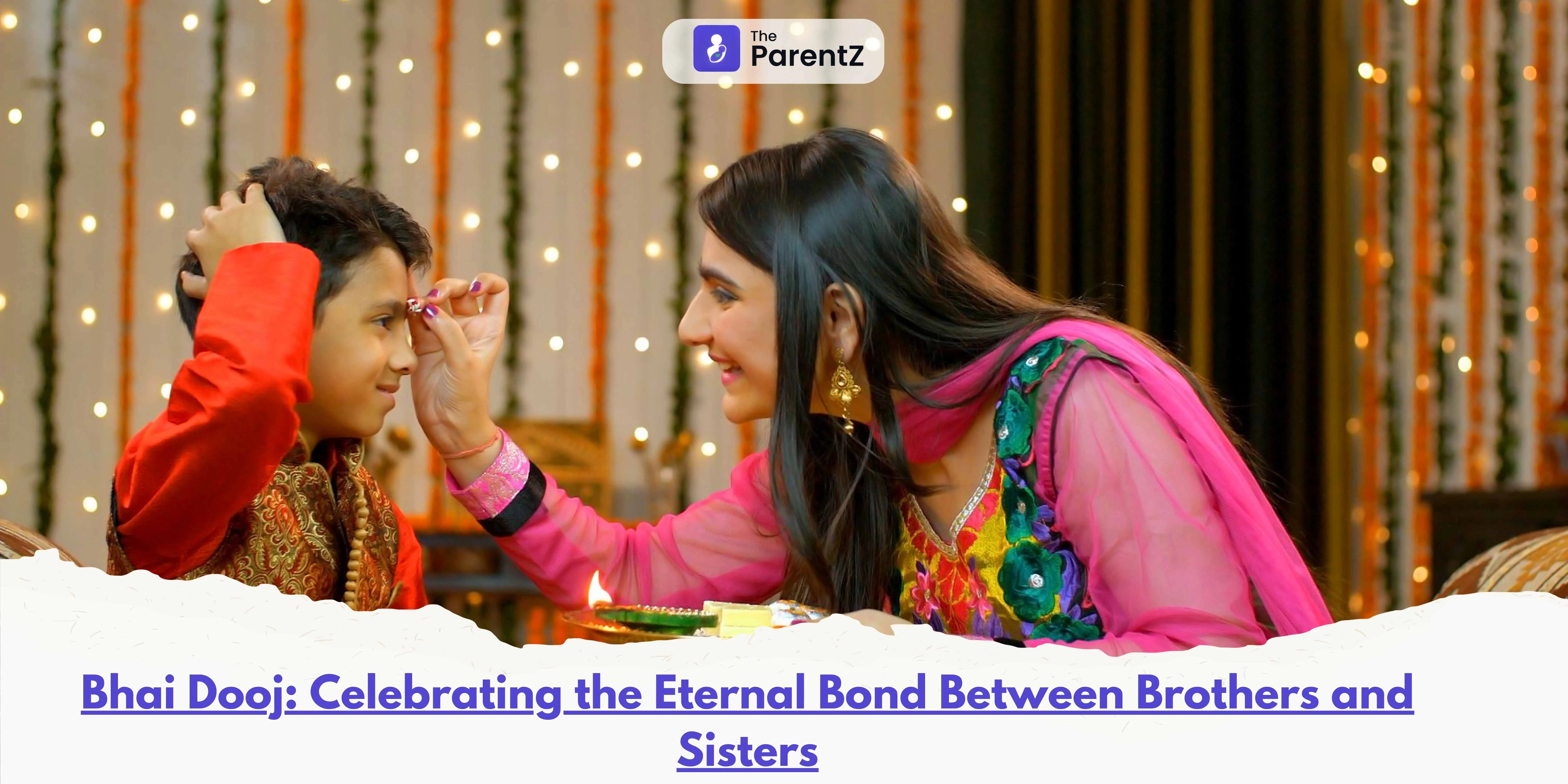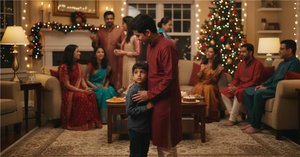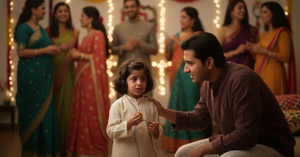Bhai Dooj, also known as Bhaiya Dooj or Bhau Beej, is a Hindu festival that celebrates the special and eternal bond between brothers and sisters. It is observed on the second day of the Shukla Paksha (waxing phase of the moon) in the month of Kartika, two days after Diwali. Similar to Raksha Bandhan, Bhai Dooj emphasizes the love, protection, and care shared between siblings.
The festival is an occasion for brothers and sisters to come together, exchange gifts, and perform rituals that symbolize their mutual respect and affection. Bhai Dooj has both religious and cultural significance, serving as a time for families to strengthen their relationships and express gratitude for each other. This article explores the traditions, rituals, and cultural importance of Bhai Dooj, delving into how the festival is celebrated across India and the deeper meanings it holds for Hindu families.
The Mythological Background
The origin of Bhai Dooj is often linked to two prominent Hindu legends, both of which highlight the sacred bond between a brother and his sister.
- Yama and Yamuna: According to one popular legend, Bhai Dooj celebrates the bond between Yama, the God of Death, and his sister, Yamuna. The story goes that Yamuna invited Yama to her home and prepared a feast for him. After spending a joyful day with his sister, Yama blessed her with protection and promised to visit her every year. He also declared that any brother who receives a tilak (a ceremonial mark on the forehead) from his sister on this day would be blessed with a long and prosperous life.
- Lord Krishna and Subhadra: Another legend connects Bhai Dooj to Lord Krishna’s visit to his sister Subhadra after defeating the demon Narakasura. Subhadra welcomed Krishna with aarti (a ceremonial worship with light), applied a tilak on his forehead, and prayed for his well-being. This event is said to have established the tradition of sisters performing tilak rituals for their brothers on Bhai Dooj.
These stories emphasize the protective and loving bond shared between siblings, which is the core essence of Bhai Dooj.
Rituals and Traditions of Bhai Dooj
Bhai Dooj is celebrated with a series of rituals that strengthen the bond between brothers and sisters. While the specifics of the rituals may vary across regions, the core customs are observed with great devotion:
- Tilak Ceremony: The most important ritual of Bhai Dooj is the application of the tilak. Sisters prepare a thali (a decorative plate) filled with ingredients such as rice, vermillion, sweets, and a small diya (lamp). They then apply a tilak made of vermillion or sandalwood paste to their brothers’ foreheads. The tilak is a symbol of the sister’s prayers for her brother’s long life and prosperity.
- Aarti: After applying the tilak, the sister performs an aarti for her brother, waving a lamp in a circular motion in front of him while reciting prayers for his well-being. This ritual is believed to ward off evil and bring good fortune to the brother.
- Exchanging Gifts: Once the rituals are completed, brothers and sisters exchange gifts as a token of their love and affection. It is customary for brothers to give gifts or money to their sisters as a gesture of appreciation and protection. Sisters, in turn, offer their brothers sweets and sometimes handmade gifts.
- Feasting: As with many Hindu festivals, food plays an important role in Bhai Dooj. Sisters often prepare their brothers’ favorite dishes, and families gather to share a festive meal. The act of sharing food is symbolic of the unity and love that siblings share.
These rituals reflect the deep cultural significance of sibling relationships in Hindu families and the mutual responsibilities that brothers and sisters have toward one another.
Cultural and Emotional Significance
Bhai Dooj is more than just a ritualistic festival; it is a celebration of the emotional bond that exists between brothers and sisters. The festival provides an opportunity for siblings to express their love, care, and respect for each other, reinforcing the values of familial unity and protection. In Indian culture, the relationship between brothers and sisters is considered sacred, and Bhai Dooj is a day dedicated to honoring this bond.
- Protection and Blessings: The tilak ceremony symbolizes the sister’s wish for her brother’s safety and prosperity, while the brother, in return, vows to protect and support his sister throughout her life. This mutual exchange of blessings and protection reinforces the cultural values of kinship and familial responsibility.
- Strengthening Family Bonds: Bhai Dooj serves as a reminder of the importance of family in Indian culture. It brings families together, regardless of geographical distance, and allows siblings to reconnect and reaffirm their commitment to one another. In modern times, when families may be spread across different cities or countries, Bhai Dooj provides a much-needed opportunity to strengthen these relationships.
The festival also highlights the importance of women in Indian society, as sisters are seen as protectors and nurturers within the family dynamic.
Regional Variations
Bhai Dooj is celebrated in different ways across various parts of India, with regional variations that add to its cultural richness:
- North India: In states like Uttar Pradesh and Bihar, Bhai Dooj is celebrated with grand feasts, and sisters often prepare elaborate meals for their brothers. The tilak ceremony is central to the celebration, and brothers present gifts to their sisters.
- Maharashtra: In Maharashtra, Bhai Dooj is known as Bhau Beej. Here, the festival is observed with the same tilak and aarti rituals, but an additional tradition involves sisters inviting their brothers to a meal. A special dish called basundi puri is often prepared for the occasion.
- West Bengal: In Bengal, the festival is known as Bhai Phonta. Sisters apply a mixture of sandalwood paste and vermillion on their brothers’ foreheads while reciting prayers for their well-being. The day is marked by family gatherings and feasts.
Each region’s unique customs add layers of meaning and celebration to the festival, making Bhai Dooj a widely cherished occasion across the country.
Conclusion
Bhai Dooj is a heartfelt celebration of the timeless and sacred bond between brothers and sisters. Through its rich traditions and rituals, the festival honors the love, protection, and mutual respect that siblings share. The tilak ceremony, aarti, and gift exchanges are symbolic gestures that emphasize the values of care and commitment that siblings uphold for each other.
In a fast-paced world where familial bonds are often strained by distance and time, Bhai Dooj serves as a powerful reminder of the importance of family. It brings siblings together, allows them to reconnect, and strengthens the emotional ties that define their relationship. Whether through elaborate rituals or simple gestures, Bhai Dooj continues to be a festival that celebrates one of the most cherished relationships in Indian culture—the eternal bond between brothers and sisters.









Be the first one to comment on this story.